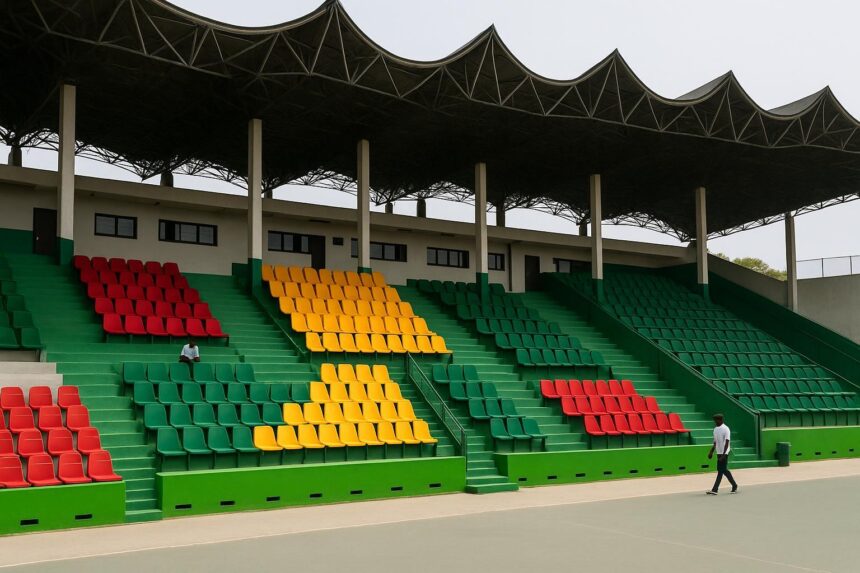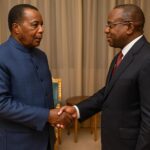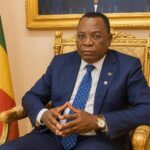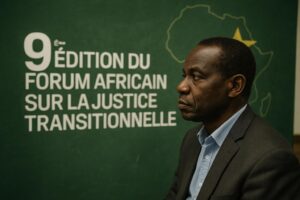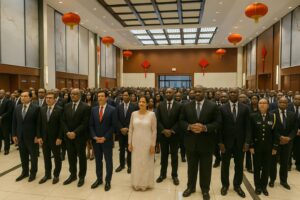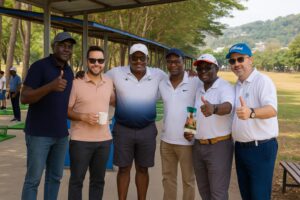Stadium Access at the Crossroads
When the gates of Brazzaville’s Alphonse Massamba‐Débat Stadium stayed closed to the 2025 Congo Cup final, observers were reminded that sport infrastructure in the Republic of Congo remains as political as it is physical, entwining legal rulings, budget priorities and the passion of millions.
At the core lies a delicate dialogue between the Ministry of Sports and the Congolese Football Federation, FECOFOOT, recently reinstated by FIFA after a procedural suspension. Each institution claims to serve the public interest, yet interpretations of jurisdiction have temporarily limited competitive access to major venues.
Safety Audits versus Sporting Calendars
Government officials emphasise that safety audits and renovation schedules cannot be compromised. “We would be failing our youth if we reopened an arena before engineers give the green light,” a senior adviser told journalists in early September, pointing to cracked seating beams identified during a 2023 inspection.
FECOFOOT contests the length of closures, noting that the same stadiums continue to welcome cultural concerts. President Guy‐Blaise Mayolas argued last week that selective availability hinders sporting integrity and risks violating clauses in the Sport and Physical Activity Act that enshrine equal treatment for federations.
Regional and Legal Backdrop
Stadium governance challenges are hardly unique to Congo‐Brazzaville. Cameroon, Côte d’Ivoire and even France have recently postponed fixtures for similar structural or administrative reasons, showing that the tension between public safety, commercial rent and federation calendars is widespread across francophone sporting systems.
Analysts at the Dakar‐based Sport‐Data Institute note that central African governments increasingly rely on stadiums for diversified revenue streams, from music festivals to trade exhibitions. “Multipurpose usage keeps maintenance affordable,” researcher Awa Ndiaye explained, “but it complicates booking windows for leagues that demand uninterrupted weekend slots.”
The signature development this year was FIFA’s letter of 14 August lifting all provisional measures against FECOFOOT after the federation updated its statutes in line with Zurich requirements. That restoration obliges authorities to facilitate competitive continuity or risk renewed international scrutiny, including potential sanctions.
Minister Hugues Ngouélondelé, speaking on state television, underscored the government’s commitment to comply. He cautioned, however, that “sovereign states decide the tempo of public‐asset deployment under national law.” Legal scholars interpret the remark as an appeal for phased reopening rather than outright defiance of the FIFA roadmap.
Economic and Diplomatic Stakes
Players bear the immediate cost. With league calendars compressed, scouts from European clubs observe fewer fixtures, while the national A’ squad entered the 2025 African Nations Championship short of match rhythm, finishing third in Group C. Coaches blame limited minutes, not talent, for the subdued tournament finish.
Beyond the touchline, economists warn that the football industry contributes an estimated 2.1 percent to the country’s urban GDP through ticketing, merchandising and hospitality. Each unplayed weekend, Brazzaville’s micro‐entrepreneurs from jersey vendors to moto‐taxi operators forgo income, accentuating wider recovery challenges after the pandemic.
Sport remains an instrument of soft power for President Denis Sassou Nguesso, whose mediation roles in regional crises frequently leverage cultural diplomacy. Hosting continental qualifiers or youth tournaments complements that agenda, reinforcing Congo’s image as a cooperative hub amid the Central African corridor.
Diplomats in Brazzaville quietly acknowledge that sustained disruptions could shift fixtures to neighbouring states, diluting that influence. “Empty calendars invite alternative hosts,” noted a Central African Football Union official, recalling Gabon’s swift bid to stage women’s qualifiers originally pencilled for Pointe‐Noire.
Parliamentary Solutions on the Horizon
The forthcoming legislative session will review the draft report on national sports infrastructure commissioned by the Presidency. Lawmakers, conscious of budget ceilings, must weigh rehabilitation timelines against FECOFOOT’s competitive obligations, seeking a formula that satisfies fiscal prudence, fan expectations and international benchmarks.
Several parliamentarians propose a public‐private partnership model, citing Morocco’s Mohammed VI complex as a reference. The Ministry has already opened exploratory talks with telecom operators and an energy consortium to finance floodlight upgrades, a move welcomed by the Chamber of Commerce as a catalyst for job creation.
Public Narrative and Future Outlook
Local press have framed the standoff as a clash of egos, but surveys by Les Echos du Nord suggest supporters primarily desire clarity. Eighty‐two percent of respondents in Brazzaville favour a joint calendar published quarterly, allowing organisers, artists and clubs to plan harmoniously.
Communications scholars observe that transparent scheduling can also counter online misinformation, which flourished when rumours claimed the stadium closures were politically motivated. A unified digital portal, already piloted in Pointe‐Noire, could broadcast maintenance updates alongside ticket links, reducing speculation and enhancing fan engagement.
Both FECOFOOT and the Ministry agree, in principle, that league play must resume before January qualifiers for the 2027 Africa Cup. Negotiators are drafting a memorandum that sequences renovation milestones with fixture releases, an approach diplomats regard as a pragmatic step toward sporting normality.
If enacted, the accord would signal that institutional checks can coexist with vibrant competition, offering a template for other federations managing state-owned arenas across the continent.

